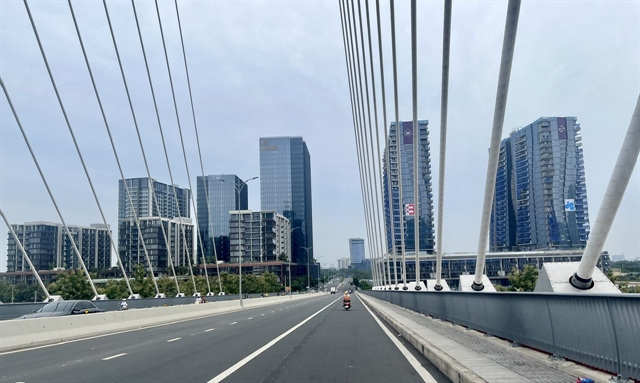 Society
Society


|
| New real estate projects in Thủ Thiêm, HCM City, which has added 23 more developments eligible for foreign buyers, bringing the total to 88. — VNS Photo Bồ Xuân Hiệp |
HCM CITY — Authorities in HCM City have approved 23 additional residential projects where foreigners are permitted to buy homes, raising the total number of eligible developments in the southern economic hub to 88.
The newly cleared list includes major projects such as Vạn Phúc 1, 2 and 3 by Vạn Phúc Real Estate, covering more than 807,000sq.m; the Sóng Việt complex by Quốc Lộc Phát; the Phước Kiển residential project in Nhà Bè District by Nam Sài Gòn Residences; the Lancaster Legacy project by Trung Thủy; the Masteri Thảo Điền project by Masterise; and a high-end apartment renovation project on Đồng Văn Cống Street by Bách Lộc.
This is the third update in 2025. Two earlier rounds added 65 projects, including nine by Phú Mỹ Hưng Development Corporation, one of the city’s largest developers, and three by Phú Hưng Thái, a joint venture between Phú Mỹ Hưng and Japanese partners.
Analysts say widening access for foreign investors could help boost liquidity in a market grappling with oversupply, stalled projects and tight financing, while also meeting rising demand from international specialists as HCM City seeks to position itself as a regional financial hub and expand into industries such as semiconductors.
Tightly regulated market
Foreign housing ownership in Việt Nam remains tightly regulated. Individuals and organisations must hold a valid investment license, corporate registration or entry permit, and can only purchase units in commercial housing projects that do not affect national defense or security.
Ownership is capped at 30 per cent of apartments in a condominium or 250 landed houses in a single ward.
Foreign organisations investing directly in housing must hold an investment registration certificate, while those not building projects themselves must provide valid operating documents in Việt Nam at the time of purchase.
Since Việt Nam first opened its property market to foreigners in 2015, HCM City has accounted for the majority of eligible projects.
Other urban centres have also taken steps to open up: Hà Nội has approved several luxury complexes in new districts such as Nam Từ Liêm, while Đà Nẵng has both announced projects available to foreign buyers and restricted others due to national security.
Experts note that while restrictions remain, the gradual expansion of eligible projects underscores growing recognition of foreign demand as a stabilising force in Việt Nam’s property sector. — VNS